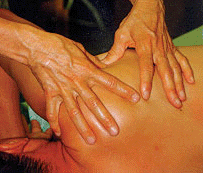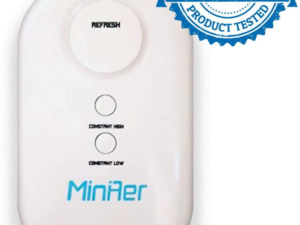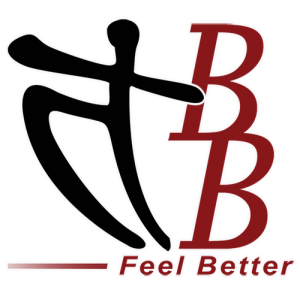Frozen Shoulder
By far, the coolest joint in the body (to me) is the shoulder. It moves in absolutely every direction. The hips are a close second, but there is limited mobility in certain planes of movement.
Mobility in the shoulder provides us all with a multitude of ways to perform very simple everyday activities. The ligaments that hold the upper arm bone, the humerus, a.k.a. the ‘funny bone’, in the socket are quite loose to allow for this wide range of motion. Because they are lax, they don’t do much to hold the shoulder together. Another fact is that the socket in which the top or the “head” of the humerus sits, is a very shallow, concave surface.
What really holds the shoulder together and stabilizes the joint are muscles that are referred to as the rotator cuff (no, it’s not your ‘rotary cup’). There are four small muscles that run from the shoulder blade to the humerus. These muscles completely surround the humerus like a sleeve or cuff. They are very dynamic, contracting to stabilize the shoulder when needed or relaxing to allow you to move the arm freely. The movement of our shoulder is so free and easy that we often take it for granted.
How does a shoulder “freeze“?
Frozen shoulder, also referred to as adhesive capsulitis, typically starts with a minor injury. For example, you may jar your shoulder by tripping and breaking your fall with an outstretched arm. It may also start after an inflammatory problem, like a little tendinitis or bursitis of the shoulder.
When we experience pain in any joint, we will instinctively limit the movements of this area in the hopes of avoiding any further discomfort. Although it is important to limit the movement in the first 24-48 hours of such an injury, further prolonged splinting of the shoulder joint can create a vicious cycle that begins to see a buildup of adhesions (scar tissue). This limited movement in conjunction with the buildup of scar tissue can began to create fibrous tissue around the ligaments, causing them to “lock down”. The greatest area of concern is the lower part of the joint where the ligamentous tissue becomes most lax when immobilized.
Once these adhesions begin to form, the shoulder starts to feel stiff and uncomfortable. You’ll limit your movement in response to the pain and the reduced movement causes more stiffness. Before you know it, you’re trapped in what seems to be a malicious cycle.
If you don’t take care of the problem immediately, it will progress from a little discomfort to severe pain that can interfere with some of the most mindless tasks such as brushing your teeth or combing your hair. After a period of prolonged disuse, your shoulder will become, in a sense, frozen. This lack of movement also begins to cause pain both down the arms and into your neck, causing a cascading impact of what started out as a minor injury.
 If you catch this problem in its early stages, some self-care exercises can assist in regaining full mobility of the joint. Massage is another means in which to tackle this issue early on, but as the adhesions become thick and the pain slowly increases, manual therapy can seem like a form of medieval torture. Personally, I have handled many advanced cases of frozen shoulder with very positive outcomes, but it was not without the great efforts of my patients to be capable of both handling this discomfort (to put it mildly) as well as significant efforts on their part when it came to self-care.
If you catch this problem in its early stages, some self-care exercises can assist in regaining full mobility of the joint. Massage is another means in which to tackle this issue early on, but as the adhesions become thick and the pain slowly increases, manual therapy can seem like a form of medieval torture. Personally, I have handled many advanced cases of frozen shoulder with very positive outcomes, but it was not without the great efforts of my patients to be capable of both handling this discomfort (to put it mildly) as well as significant efforts on their part when it came to self-care.
Conventional treatment for severe cases usually involves manipulation while under an anesthetic. A surgeon will put you under, and while you are asleep, force the joint through a complete range of motion, pulling apart any adhesions. In certain cases, surgery may be required where they need to go in and cut through the adhesions.
Typically, prior to this approach, the doctor may recommend the use of NSAID’s or a cortisone shot. Regardless, one should not expect a speedy resolution to a true condition of frozen shoulder.
There are cases however, that I have been presented with, that all signs and previous diagnosis’s pointed to the shoulder being frozen, but in actuality, there were some stubborn trigger points causing the shoulder to remain immobilized due to the amount of pain the patient was feeling when moving or even while sleeping. These trigger points can be addressed and neutralized to the point where a fully recovery is achieved without the use of any surgery, cortisone or medieval torture rituals and typically in just a few treatments.
If you feel that you may be in the early stages of what seems like frozen shoulder, please discuss your treatment options with your massage therapist before a minor injury becomes a frozen pain.
Ready to #feelbetter?
You're just a click away from a wicked good massage!
-

60 Minute Massage Gift Card
$170.00 Add to cart -

90 Minute Massage Gift Card
$255.00 Add to cart -

Mini Aer Small Room Air Purifier
$149.00 Add to cart -
Sale!

Thera-Pearl Sports Pack/Hot Cold
Original price was: $14.99.$12.99Current price is: $12.99. Add to cart -

3 Somadome Sessions Gift Card
$135.00 Add to cart -

TheraBand CLX Connective Loop
$14.99 Select options -

6 Somadome Sessions Gift Card
$270.00 Add to cart -
Sale!

Biofreeze
Original price was: $14.99.$12.99Current price is: $12.99. Add to cart
Sprain vs. Strain; What’s the Difference?
Sprain vs. Strain; What’s the Difference? So you think you might have sprained or strained something. How do you know which it is, and does it matter? You’ve heard the two terms your entire life, but did you know that there is not only a major difference between them, there are also varying grades and…
Read MoreComplimentary Consultations for Members
As we unveil the newest membership perk at The Boston Bodyworker, our Recovery Lounge, we wanted to reach out to our members to introduce them to one of its many features; Me! As the owner of The Boston Bodyworker, my goal is to help people ‘feel better’. However, that means different things to all of…
Read MoreLife Hack: Vagus Nerve Stimulation
As I discussed in our March Newsletter, Vagus nerve stimulation has the potential to help those suffering from various health conditions, including but certainly not limited to anxiety disorders, heart disease, some forms of cancer, poor circulation, leaky gut syndrome, Alzheimer’s, memory and mood disorders, migraines and headaches, fibromyalgia, obesity, tinnitus, addiction, autism and autoimmune…
Read MoreSleep In This Weekend
Raise your hand if your sleepy right now? Great! Now, put your hand down because your boss is wondering why you’re raising a hand at work. Even if you can’t physically acknowledge that you are sleepy, we have some exciting news that we know you’ll want to stay awake for. It turns out, that getting…
Read More30 Day Challenges
Over the past few years, I have been seeing and uptick in these 30 day challenges. Being in the industry as long as I have, I immediately have issue with any workout that is done every day. The science is as clear as crystal. The days off are where the magic of tissue remodeling and…
Read MoreLife Hack: Close Your Windows
If you suffer from season allergies, then this season is said to be the worst for many of you in a long time. I won’t get into the debate about climate change and how it is said to have an impact on the latest seasonal allergy warnings. I’ll try to keep this hack as simple…
Read MoreThe Power of Suggestion
We have all heard the term “Placebo”. A placebo is a treatment that decreases symptoms only because the client imagines a benefit, not because the treatment itself has any effect. For example, a sugar pill can be a placebo that will improve a headache only if the person taking the pill has an expectation that…
Read MoreIs All Knee Pain Created Equal?
As a massage therapist, it is outside our scope of practice to diagnose any condition we see. However, that does not prevent us from evaluating, assessing and working off this information. Often, we have patients who come in with a “google-osis”, meaning they just googled something like “knee pain” looked for whatever symptoms seemed to…
Read MoreMembers Recovery Lounge
At The Boston Bodyworker, we are constantly motivated to honor our mission to help you “Feel Better”. Coming this April, we are delighted to unveil our newest membership advantage; our Recovery Lounge. Members will enjoy a dedicated space….exclusive access to a private/semi-private room that has been transformed into a place for you to arrive early…
Read MoreLife Hack: Yellow Mustard to Reduce Cramps
Runners are always seeking an edge, especially on race days. Well, the biggest running race of the season is creeping up quickly and the only thing that will creep up faster are cramps along the marathon route. Have no fear, we have a simple solution for you; Yellow Mustard! That’s right, mustard Seeds of its…
Read More
